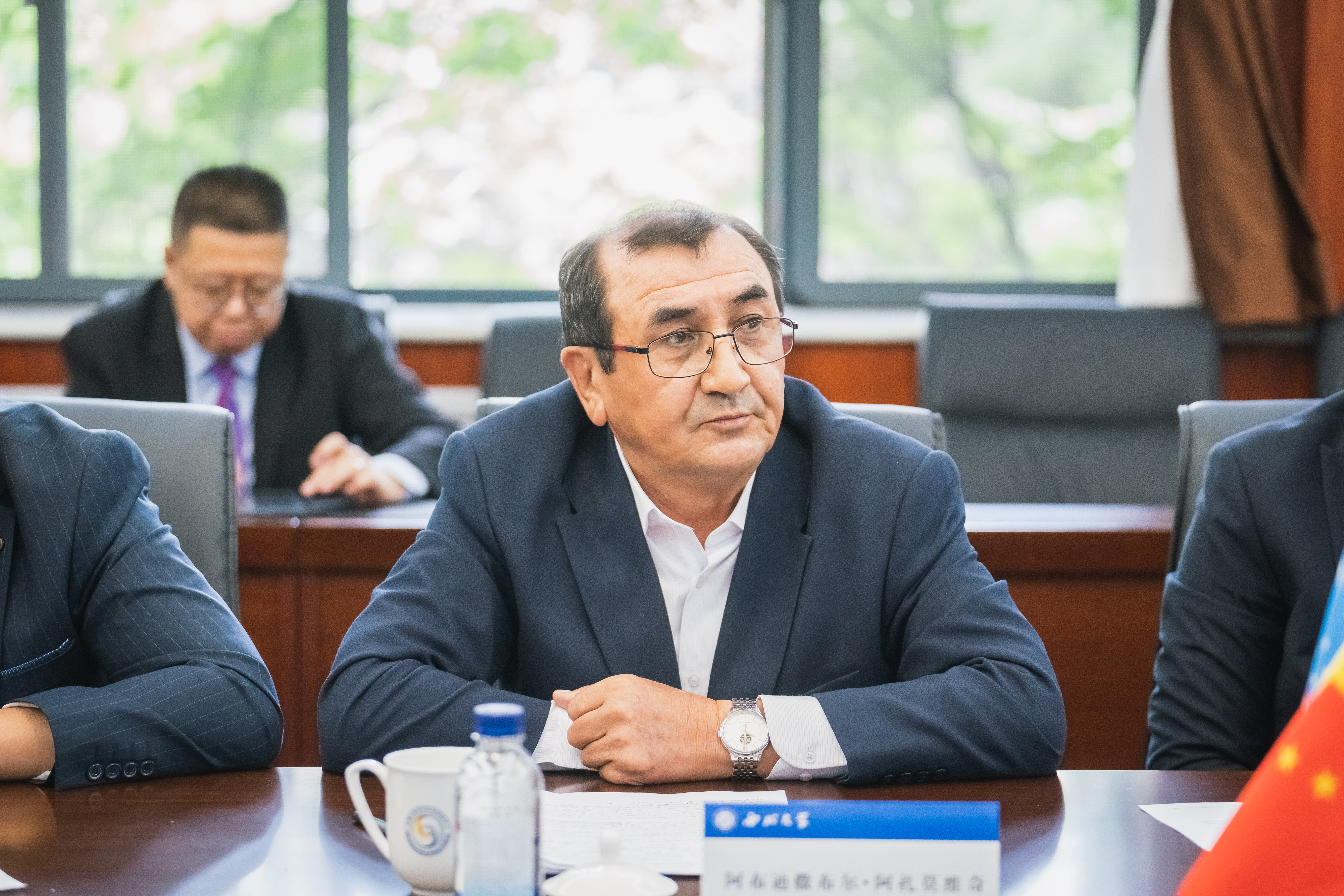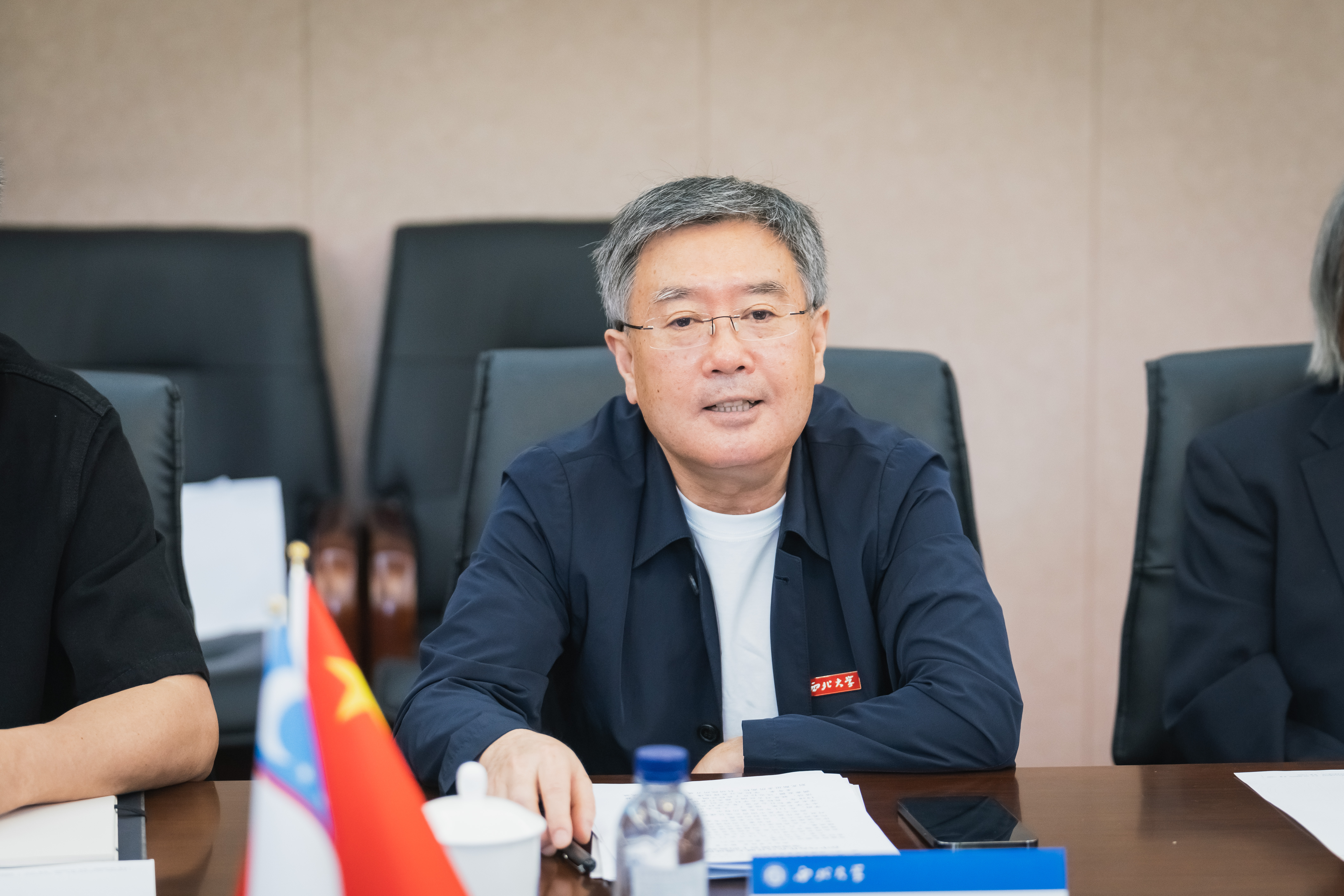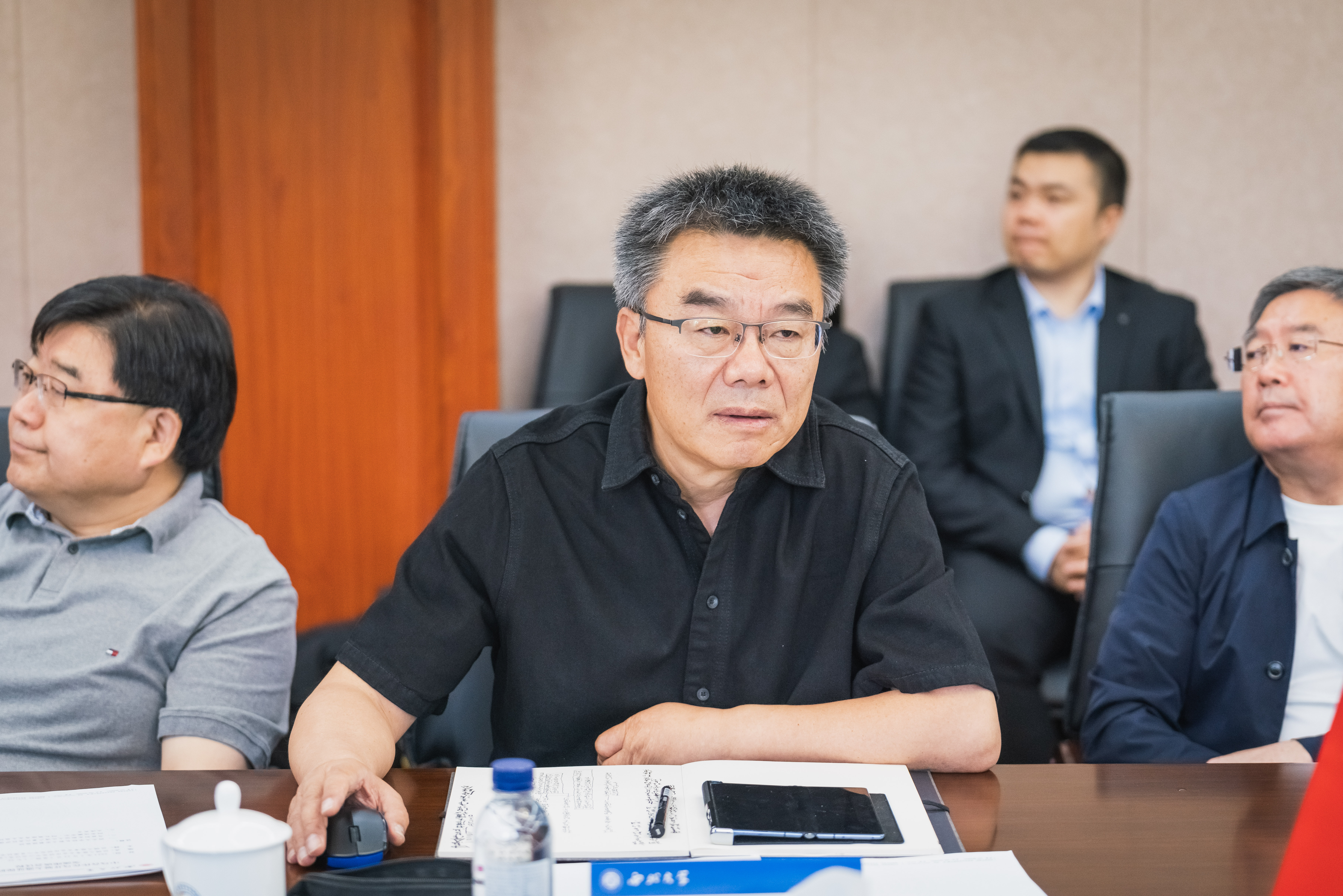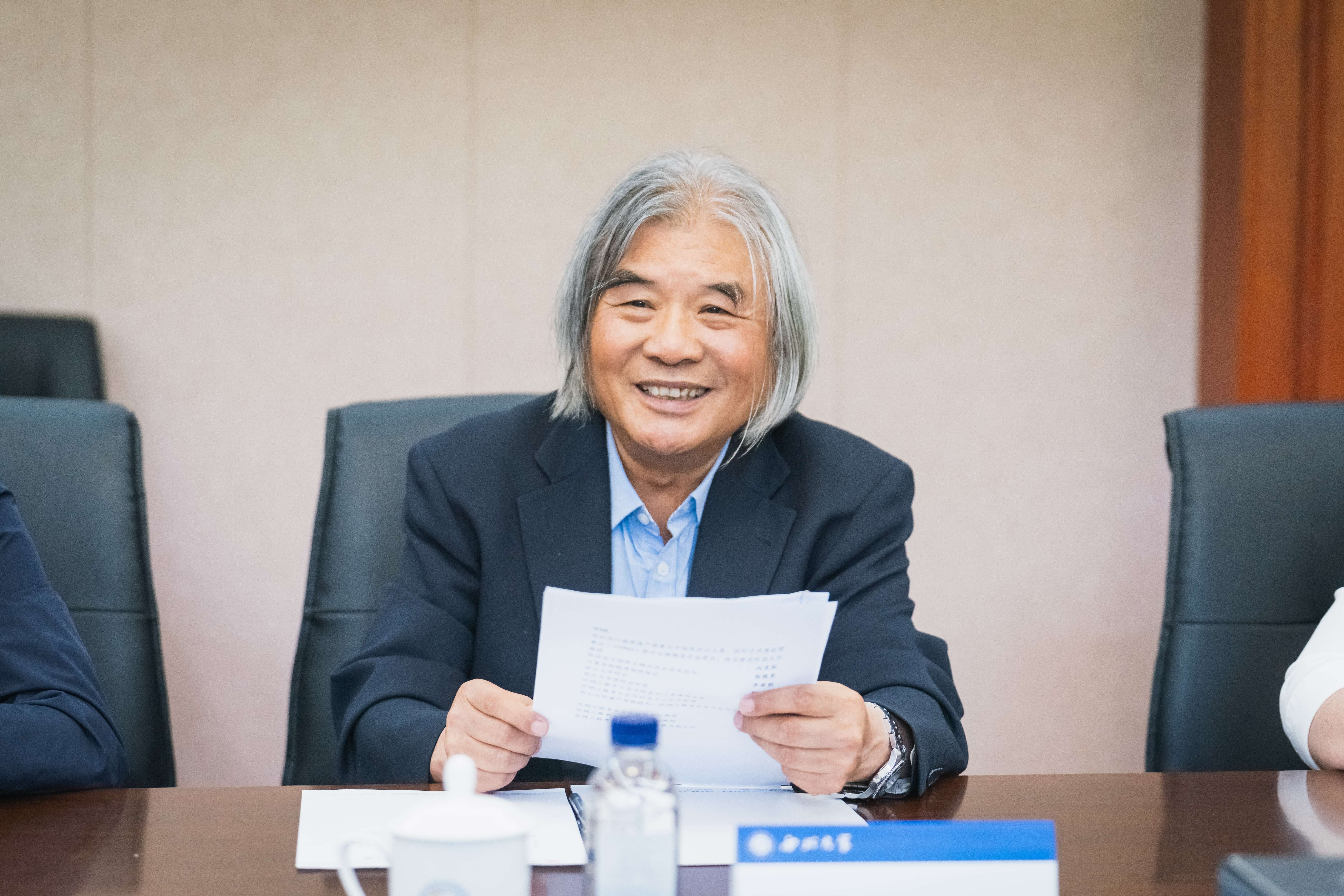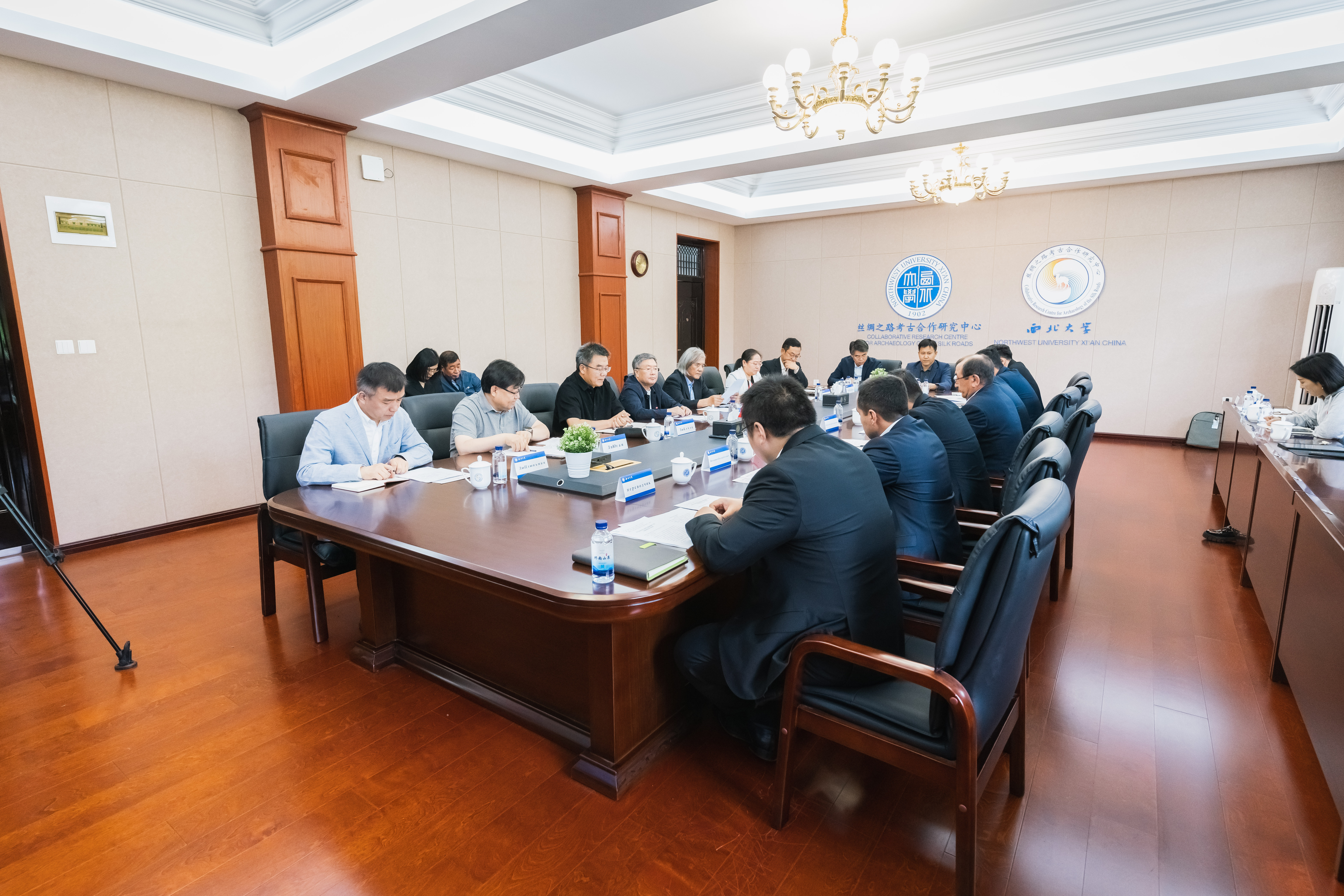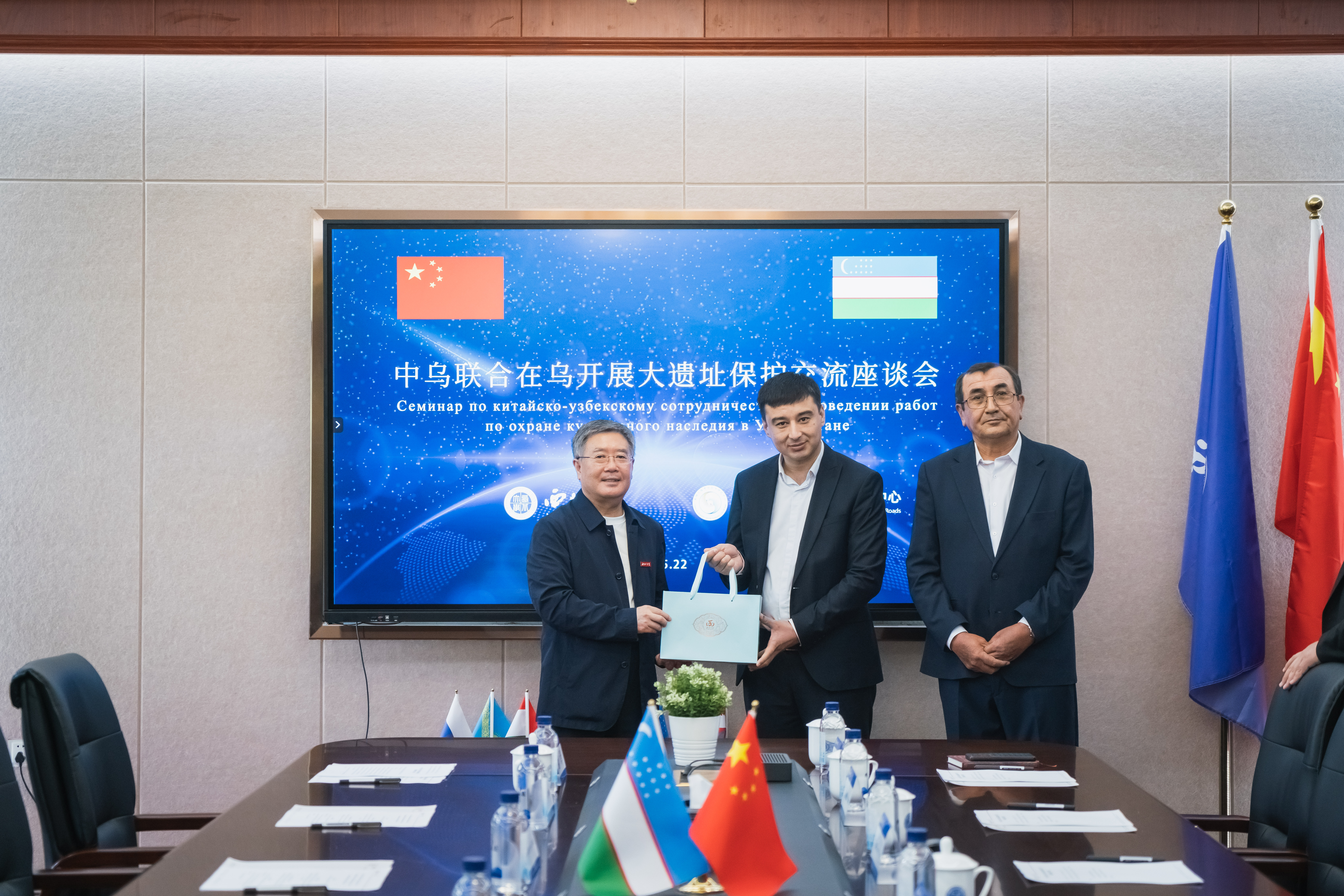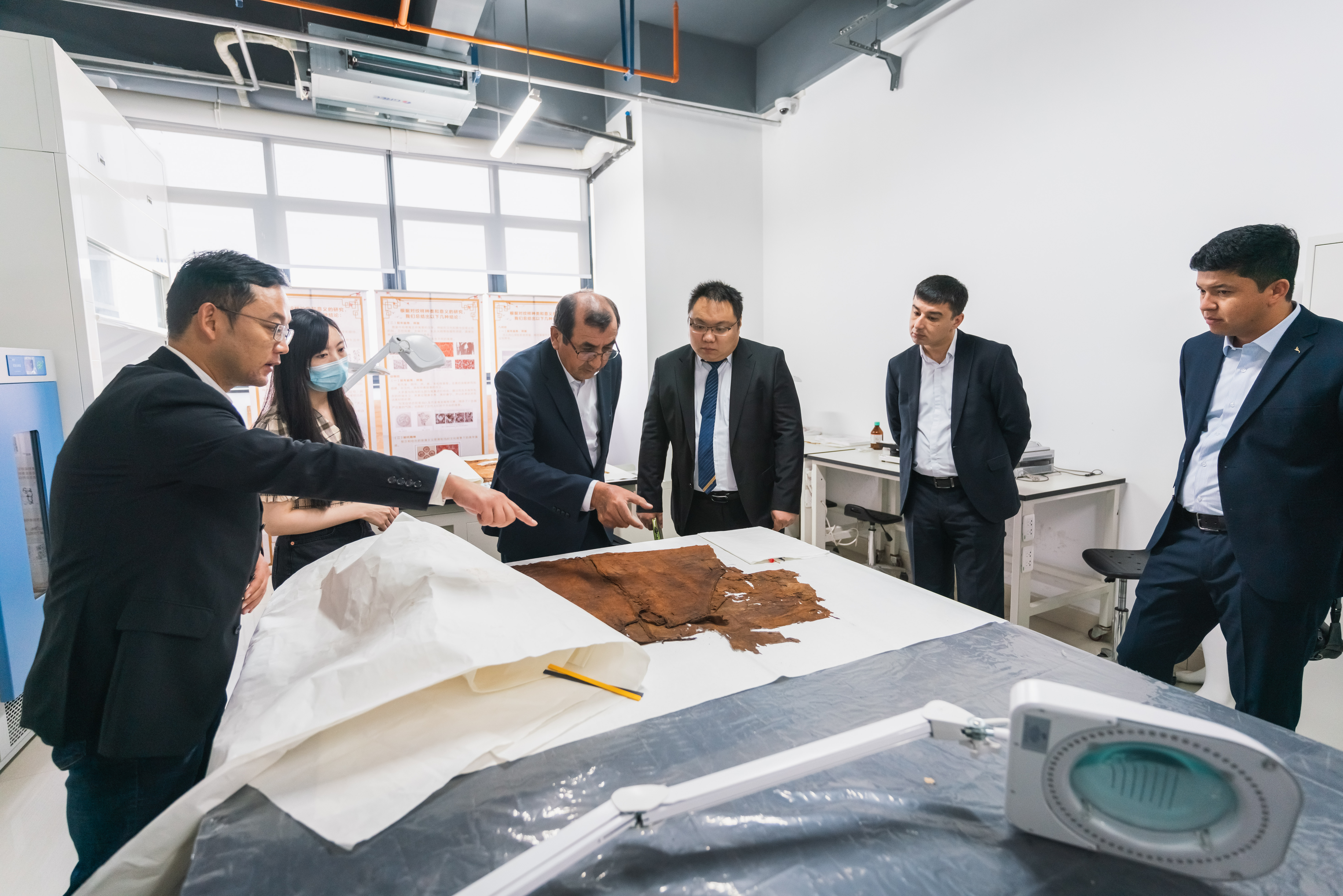On the morning of May 22nd, the Sino-Uzbek cooperation in the conservation of major sites in Uzbekistan was held in Northwest University. A five-member delegation from the National Cultural Heritage Department of the Ministry of Culture and Tourism of Uzbekistan, Liu Kecheng, Chairman of the China Committee of the International Council on Modern Architectural Heritage, member of the Display and Interpretation Committee of the International Council on Monuments and Sites (ICOMOS) and Professor of Xi’an University of Architecture and Technology, Zhang Xiaoying, Director of the Cultural Heritage Exchange and Cooperation Department of the Shaanxi Provincial Bureau of Cultural Heritage, Li Juzang, President of the Hanjing Emperor Yangling Museum, and relevant officials from respetive units of NWU to participate in the discussion.
President Guo Lihong welcomed the visit of the delegation. He introduced the development of the archaeology discipline of the university and reviewed the achievements of the university in recent years, such as the joint construction of the Collaborative Research Center for the Archaeology of the Silk Roads, the China-Central Asia Joint Laboratory of Humanity and Environment, the issuance of the “China-Uzbek Silk Road Archaeology” stamps and folders, and the cultivation of talents for country and regional studies with relevant schools and departments of the university. He hopes that with the publication of the Xi’an Declaration of the China-Central Asia Summit and the cooperation between China and Uzbekistan in the conservation of major sites in Uzbekistan, we can continue our traditional friendship and promote humanistic exchanges and people-to-people ties between China and Uzbekistan.
The chief researcher of the Samarkand Archaeological Institute of Uzbekistan, Raimugulo Abdisabur Azamovich, said that China and Uzbekistan have a long history of trade and humanistic exchanges along the ancient Silk Road, and Uzbekistan is an active place where civilizations interacted with each other, leaving behind a rich cultural heritage, and he hopes to learn from China’s advanced experience in the conservation of large sites, which will provide a reference for the Uzbekistan side to carry out its work.
After that, Prof. Liu Kecheng introduced Chinese useful exploration and advanced experience in the protection of major sites and construction of site parks, taking Xi’an as an example. Experts from both countries discussed the topics related to the cooperation between China and Uzbekistan in the conservation of great sites in Uzbekistan.
